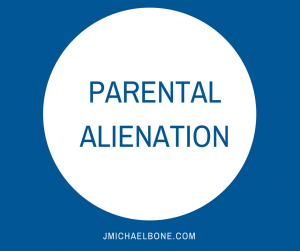Illinois Divorce: Hey, I made #39! Top 75 Illinois Blogs
Illinois Divorce; High Conflict Cases and Splitting
Many years ago, I helped a bit with Bill Eddy’s first book, a landmark publication called Splitting that discussed and defined for the first time what it can be like to go through a divorce with a High Conflict Personality, such as a person with BPD or NPD traits. Here is a video from one of Bill’s series, discussing the analogy between splitting in politics, and the splitting that can occur in divorce.
Splittign behaviors can lead to conflict distortions, false allegations, and parental alienation, in a divorce and child custody case. It is always good to understand these phenomena, and to appreciate ways to manage them successfully in a divorce case.
Theories of the High-Conflict Case: Abuse Allegations
FAMILY LAW: 3 Theories of the High-Conflict Case
© 2017 Bill Eddy, LCSW, Esq.
I do a lot of consulting to family lawyers and their clients (often on the phone together), as well as many self-representing people in family court cases. These often involve high-conflict custody and access issues, although finances can also be involved. One of the biggest problems I keep seeing is that many family law professionals (lawyers, judges, mediators, evaluators, counselors, etc.) have a presumption in high-conflict cases. Here are the three most common presumptions:
Illinois Divorce: Quick Tip: Parental Alienation / Estrangement Defined
When a child is resistant to seeing a parent, the reasons can be reduced to two basic phenomena: alienation or estrangement. Alienation refers to a child’s resistance or refusal to see a once loved parent, typically within the context of divorce or post divorce. In the case of “Estrangement” it is that parent’s own actions that have caused the child to not want to be with that parent.

Illinois Divorce: Personality awareness: The key skill to dealing with high-conflict people
“Could you become a high-conflict person’s (HCP’s) Target of Blame? If you’re not watchful and careful, yes. HCPs generally pick on people they are close to or people in authority positions. These close personal or supervisory relationships usually involve the types of people we’re inclined to invite into our lives, often without knowing much about them.
Avoiding and deflecting high-conflict behavior is like avoiding illness. You can protect yourself from becoming someone’s Target of Blame by vaccinating yourself with knowledge of the personality patterns of high-conflict people. I call this personality awareness.
In fact, with personality awareness you will be more confident in dealing with people, because you will know how to recognize the warning signs of dangerous personality patterns before they do you much harm.”
Illinois Divorce: Parental Alienation: What Can a Parent Do?
Parental Alienation: What Can an Alienated Parent Do?
Credit: Susan Heitler Ph.D.
Illinois Divorce: High Conflict Institute and Preparing for a High Conflict Divorce
” Is your partner emotionally explosive, regularly picking fights, and blaming others for all their troubles? Bill Eddy sheds light on how to manage conflict and communication with a high conflict person.”
https://www.modernseparations.com/podcast/04
Christina: What type of preparation do you recommend?
Illinois Divorce Blog: Senate Bill 4113 and the 50/50 Parenting Time Presumption
I have included below most of the text of the amended Illinois SB 4113, which seeks to establish a rebuttable presumption that an award of equal parenting time to each parent is in the best interests of the minor child(ren) in a divorce case.
For many years, my firm has represented Fathers in complex child custody cases, and in many cases my Dad clients were rightfully awarded the primary custody of their children. I have fought vigorously to level the playing field for my Dad clients through the years, some who faced false allegations, false OPs and other challenges in their divorce cases. These cases can be battles, but with the right strategy and management, the right decisions can be reached in these cases. Equally so, I have fought for women, in their own custody cases, some facing false allegations of parental alienation from a narcissistic husband. My goal has always been to develop strategies for both my male and female clients to combat parental alienation, false allegations, and to create outcomes that serve both my clients and the true best interests of the children.
So with SB 4113, the question becomes whether this legislation will, in and of itself, create that level playing field for parents? I note that many of the more vocal Bar associations have opposed this bill, and I can say that some judges with whom I have discussed this do not favor the bill. But, the idea of such a bill has a lot of favor, especially with men and women who, for too long, have been impacted by a legal system that oftentimes does not serve the best interests of children fully. Will SB 4113 create that foundation so that the court is required to factor in a presumptive 50/50 allocation of time to both parents? I am hopeful that SB 4113 perhaps undergoes some revisions that might make its passage more palatable. I note that a 50/50 presumption is a satisfying idea, but that in many cases, many judges and clinicians do not believe that a 50/50 time allocation is appropriate in most circumstances and with most families. An equalization of time is beneficial where the parents live proximate to each other, where the parents both share positive parenting traits, work schedules can accommodate 50/50 time, the age and circumstances of the kids favor shared time, and myriad other factors that can benefit a true shared parenting environment. I believe that a shared parenting bill could be written that might be more dense, more detailed and more fleshed out that might give a solid and detail-rich shared parenting bill a real likelihood of passage.
Illinois Divorce Lawyer: Facebook as Evidence
An article published in one of the leading bar journals discussed the use of social media postings as evidence in court cases. The article happened to concern a criminal case, where a Facebook posting allegedly made by a defendant using his mother’s Facebook page had statements from the defendant admitting to the time, place and means of the crime. Certainly Facebook and other social media are much more often employed these days in divorce and child custody cases, where parents try to assemble negative information and evidence concerning their spouse’s behaviors, infidelity, or use the social media platforms to stalk or otherwise gather information about their former partners and their habits and behaviors.

Whenever evidence is to be used in a court hearing, the evidence must meet certain tests for reliability. One does not have to be a forensic IT expert to know that a fraudulent Facebook page or identity can be created, or that a post can be posted by someone claiming to be another person. Because of the nature of this possible lack of trustworthiness, courts have struggled to define the foundations that must be laid in order to admit social media evidence.
Social media evidence has garnered the most distrust. As one court explained, “[t]he concern arises because anyone can create a fictitious account and masquerade under another person’s name or can gain access to another’s account by obtaining the user’s username and password.” Another concern is that regardless of whether the information is genuine or fabricated, it is “available by performing a Google search… forever,” giving the impression that it is accurate and true. Griffin v. State, 19 A.3d 415, 421-22 (Md.) Generally, a witness authenticating electronic evidence must “provide factual specificity about the process by which the electronically stored information is created, acquired, maintained, and preserved without alteration or change, or the process by which it is produced if the result of a system or process that does so.” As pointed out by Griffin, the “most obvious method [of authentication] would be to ask the purported creator if he/she indeed created the profile and also if she added the posting in question.” Id.
 Illinois Divorce Lawyer Blog
Illinois Divorce Lawyer Blog


